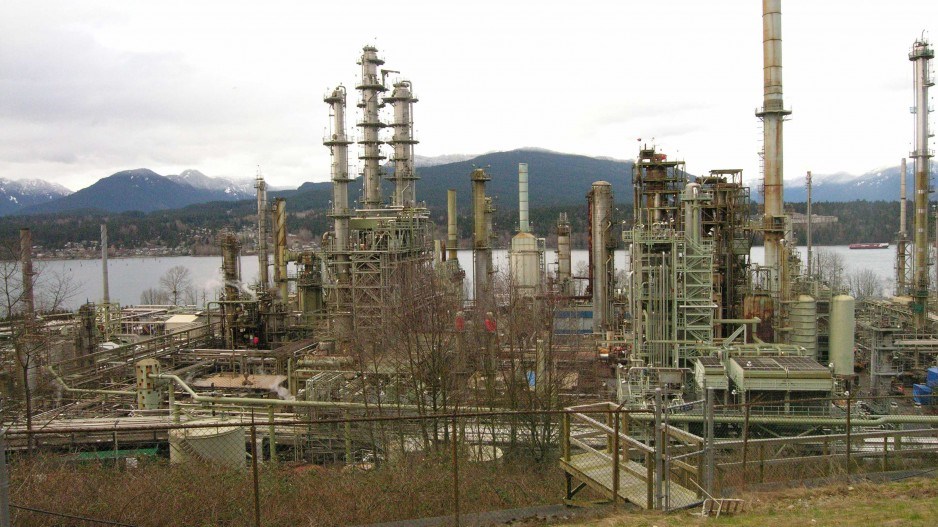A wave of divestment of Canadian oil and gas assets by global energy players to Canadian companies continued this week with the announcement of the sale of the Chevron Corp. (NYSE:CVX) refinery in Burnaby and 129 B.C. gas stations to Alberta’s Parkland Fuel Corp. (TSX:PKI) for $1.5 billion.
Parkland already owns 44 Chevron branded gas stations in B.C. but will be adding 129 more, most of them in the Lower Mainland. It will also acquire 37 cardlock stations and three marine fueling stations.
Parkland is a Canadian fuel distributor and retailer that operates gas stations and propane delivery across Canada.
“This is our first step into the refining business,” said Spenser Rocky, Parkland’s corporate development officer.
It will be able to continue supplying those stations with gasoline and diesel produced at the Chevron refinery in Burnab, and it plans to keep the Chevron brand."Parkland is acquiring a highly integrated business which adds significant supply infrastructure and logistics capability to support Parkland's existing operations,” Parkland CEO Bob Espey said in a news release.
“The refinery in Burnaby is an important asset to Metro Vancouver and British Columbia and we will continue to operate it with the capable and experienced professionals who manage the refinery today.”
The Chevron refinery processes 55,000 barrels of oil per day to produce gasoline, diesel and jet fuel. It gets a little over half of that from the Trans Mountain pipeline, with the rest brought in by rail. The refinery supplies 20% to 25% of B.C.'s gasoline and diesel.
It’s still not clear whether the refinery will have access to more oil from the Trans Mountain pipeline when it is expanded. Chevron was not among the 13 shippers to sign up for long-term contracts to move oil on the expanded pipeline, which means it has to compete on what what’s left over for the spot market.
But Rocky said the company is confident the expansion will give the refinery more access to pipeline oil.
“In the post expansion world, we’re confident with the options that we have that in one way or another we’ll be able to get the kind of cost effective crude we need,” Rocky said.
Parkland plans to spend $100 million a “material” upgrade in the first quarter of 2018 on the Burnaby refinery.
The upgrade is expected to take eight weeks. The refinery will not be shut down entirely, but will experience a lower output during the eight-week period, according to an investor presentation.
Chevron’s sale of its B.C. assets to Parkland is just the latest in a wave of divestment by international players.
Earlier this month, ConocoPhillips Co. (NYSE:COP) announced the sale of $13 billion worth of Alberta assets to Alberta’s Cenovus Energy Inc. (TSX:CVE). In March, Royal Dutch Shell PLC announced the sale of $8 billion worth of in situ and undeveloped oilsands holdings to Canadian Natural Resources Ltd. (TSX:CNQ).




